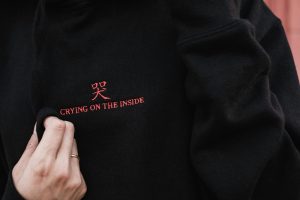Sustainable Luxury: Ethical Fashion Beyond Trends
Welcome to the world of sustainable luxury and ethical fashion, where style and conscience merge to create a fashion statement that goes beyond passing trends. In a time where fast fashion and mass production have taken over the industry, it is heartening to see the rise of a more eco-friendly and socially responsible approach towards fashion. As consumers, it is our responsibility to educate ourselves and make informed choices that align with our values. Let’s delve deeper into what sustainable luxury and ethical fashion truly mean and how we can all play a part in promoting a more sustainable fashion industry.
Sustainable Luxury: Redefining Fashion
Sustainable luxury is a term that might seem like an oxymoron at first, as luxury is often associated with excess and indulgence. However, sustainable luxury is a concept that goes beyond the superficial and focuses on creating a positive impact on the environment and society. It is not just about using sustainable materials, but also about incorporating ethical practices into every aspect of the fashion business.
Sustainability in fashion refers to the use of resources in a way that meets present needs without compromising the ability of future generations to meet their needs. This includes using eco-friendly materials, reducing waste, and promoting fair labor practices. On the other hand, ethical fashion is centered around the well-being of the people involved in the entire fashion supply chain, from the farmers who grow the cotton to the workers who sew the garments. It aims to foster a more equitable and transparent fashion industry.
Ethical Fashion: A Solution to the Dark Side of Fast Fashion
The fast fashion industry, known for its rapid production of cheap, on-trend clothing, has a dark side that often goes unnoticed. The industry is notorious for its overconsumption of resources, exploitation of labor, and waste generation. The demand for fast fashion not only puts a strain on the environment but also on the workers who are underpaid and subjected to poor working conditions.
Ethical fashion provides an alternative to this unsustainable and unethical system. By supporting brands that prioritize fair trade and fair labor practices, consumers can help create a more equitable and sustainable fashion industry. Choosing to invest in well-made, durable and timeless pieces rather than constantly buying fast fashion items can also significantly reduce the environmental impact of the fashion industry.
The Rise of Sustainable and Ethical Fashion Brands
In recent years, there has been a surge in the number of sustainable and ethical fashion brands, catering to the growing demand for ethical and environmentally-friendly fashion. These brands have adopted various sustainable practices, from using organic and recycled materials to implementing fair labor policies. Many of these brands also have a transparent supply chain, allowing consumers to trace the origins of their garments.
Furthermore, luxury brands are also beginning to embrace sustainability and ethical practices. One such example is the luxury fashion label Stella McCartney, which has been a pioneer in sustainable luxury fashion. The brand has made a commitment to minimize its environmental footprint and operates with a strict code of ethics, ensuring that all workers throughout the supply chain are treated fairly.
Take Action: How You Can Make a Difference
As consumers, we hold immense power in our purchasing decisions. By choosing to support sustainable and ethical fashion brands, we can help drive change in the industry. Here are some steps you can take to make a difference:
1. Educate yourself
Do your research and learn about the impact of the fashion industry on the environment and society. This will help you make more informed choices and support brands that align with your values.
2. Choose quality over quantity
Invest in well-made, durable pieces that will last longer and avoid constantly buying cheap, fast fashion items. This will not only reduce your environmental footprint but also save you money in the long run.
3. Support sustainable and ethical brands
Look for brands that prioritize sustainability and ethical practices, and support their efforts by purchasing from them.
4. Thrift and swap
Instead of buying new, consider thrifting or swapping clothes with friends. This not only reduces waste but also gives old clothes a new lease on life.
5. Be mindful of your fashion choices
Before purchasing a new item, ask yourself if you really need it. Be mindful of the environmental and social impact of your fashion choices and choose consciously.
In Conclusion
Sustainable luxury and ethical fashion go hand in hand, as true luxury lies in knowing that our fashion choices have a positive impact. As consumers, we must demand transparency and sustainability from brands, and make a conscious effort to support those that prioritize ethical and eco-friendly practices. Together, we can create a more sustainable and responsible fashion industry, where fashion and values are not mutually exclusive, but rather work in harmony to create a better world for all.











